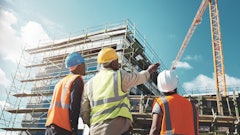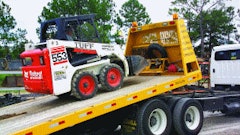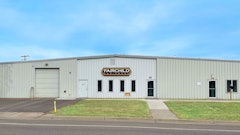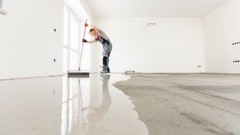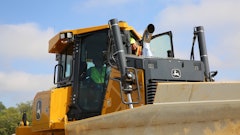
The other day I was going over a client's financial statements and noticed that their equipment was almost completely depreciated off, yet they still had a considerable amount of debt owed on the equipment. At first I thought something must be terribly wrong - then I realized what I was seeing: the impact of rapidly accelerated depreciation. Has the same thing happened to your income statement and balance sheet?
I brought this issue up with a different client, and she mentioned that she had noticed the same thing I had. So they recently had their equipment appraised to better represent the clean equity in the firm. The tax advantages of greatly accelerated depreciation had an impactful downside: it grossly understated the value of the assets in their business. As bankers tend not to be well tuned to street value of construction equipment, they were looking at the balance sheet and concluding the business' debt to equity was way out of line.
The truth was that the debt to equity only looked bad because the federal government was using rapidly accelerated depreciation schedules to promote the purchase of major equipment. From a macroeconomic perspective this is desirable outcome. From a tax standpoint it is a desirable outcome. From a borrowing standpoint, this is not a desirable outcome.
So what's the solution? Keep two sets of books. Keep one set for taxes and another set that more realistically treats depreciation. When you visit with your lender show both sets, and explain why you have two sets. Nothing wrong, illegal or unethical with this approach as long as you always bring along the official set.
You will need to work with your CPA to get the second set to balance properly. You will probably need to use spreadsheets to create the second set. You certainly don't want to mess up your accounting system.
On your second set of books, treat your depreciation like it was originally intended to be treated. In other words, you depreciate your equipment over the useful life. For example, assume you bought a new dozer and expected the dozer to last 10 years. Let's say the dozer costs $350,000 and taxes and financing will run another $50,000. You would write off $40,000 a year for depreciation ($400K divided by 10 years).
If you were using accelerated depreciation you would write off between $175, 000 and $350,000 in the first year and probably have the entire thing written off in three years
or less. On your official books your three year old dozer wouldn't be worth anything after year three despite the fact you could probably sell it for $300,000 or more on the street. Your second set of books, the realistic set, would still show your dozer to be worth around $280,000. The $280,000 value is much closer to reality and definitely more accurately represents the true equity you have built up in the firm.
Taking our example a little further, if your loan was for 48 months, by the third year the official books would show a liability of $100,000 and an asset value of $0. In reality, your $100,000 would be offset by at least $280,000 of asset value. This is where the bankers can be misled by a balance sheet and income statement.
The accelerated depreciation grossly understates your profitability as well as your asset value and owners' equity on your balance sheet. It's a double whammy to your company's perceived value. A second set of books will better reflect your business' performance and
ability to generate profits.
You should also consider getting your equipment and property professionally appraised annually or bi-annually. A formal appraisal would come in handy when you discuss your credit line with your banker.
Depreciation is the only thing that should be adjusted on your second set of books. Don't overstate your income. Don't make improper adjustments to your expenses. The second set's line items should be almost identical to your real set. Only items impacted by depreciation should be changed.
While we're on the topic of depreciation I'd like to remind you that when you are determining the proper rate at which to charge your equipment to jobs don't use depreciation as the basis. I see that mistake often. The rate you charge should be built on the purchase price, taxes and interest paid for the equipment divided by its useful life in hours, weeks or months. Naturally fuel, taxes, licenses, insurance, and maintenance and repair go on top of that. Those charges should never be buried in overhead. I'm working with multiple contractors who made that mistake and have begun to realize that approach has been throwing off their pricing.













